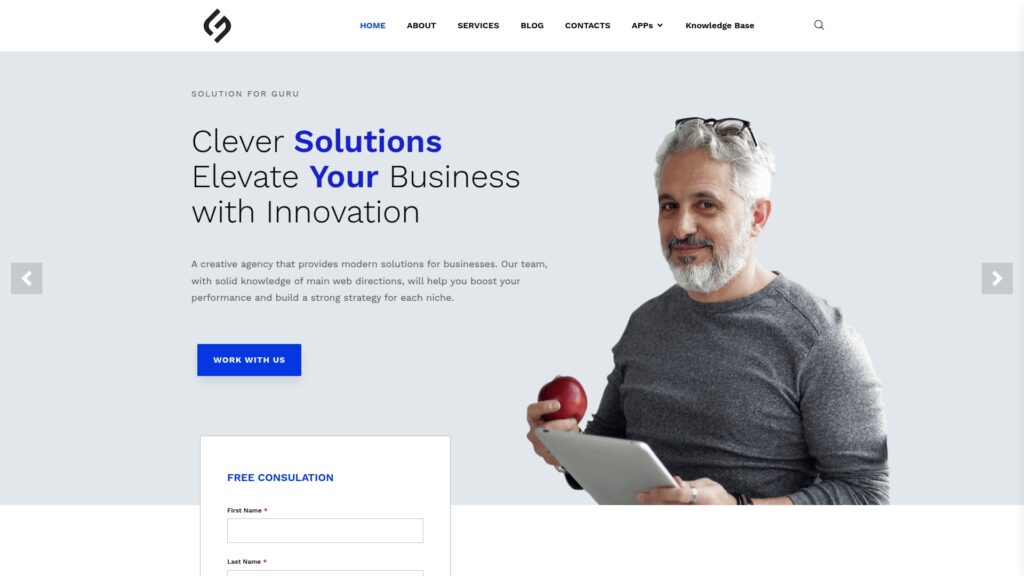ITSM Jobs: Your Guide to a Thriving Career in IT Service Management

What Are ITSM Jobs and Why Are They Essential?
Information Technology Service Management (ITSM) jobs encompass roles focused on designing, delivering, and managing IT services to align with organizational goals. These positions ensure that IT infrastructure, applications, and processes run smoothly, enhancing efficiency and user satisfaction. ITSM professionals use frameworks like ITIL (Information Technology Infrastructure Library) to streamline incident management, change management, and service desk operations. Companies like Freshservice, ManageEngine, and Zendesk provide cutting-edge ITSM platforms, creating a high demand for skilled professionals to implement and manage these tools. As businesses increasingly rely on technology, ITSM jobs have become critical for maintaining seamless IT operations and supporting digital transformation.
The rise of cloud computing, AI automation, and complex IT environments has made ITSM roles indispensable. From service desk analysts to ITSM consultants, these jobs bridge the gap between technology and business needs, ensuring organizations deliver reliable services while optimizing costs. With the global ITSM software market reaching $11.4 billion in 2024 and projected to grow to $15.4 billion by 2029, career opportunities are expanding rapidly. Whether you’re an IT enthusiast or a seasoned professional, understanding ITSM job roles and the tools driving them – like Freshservice, ManageEngine, and Zendesk – can open doors to a rewarding career in a tech-driven world.
Table of Contents
- What Are ITSM Jobs and Why Are They Essential?
- Quick Summary: Key Features of ITSM Jobs
- Why Are ITSM Jobs in High Demand Today?
- What Are the Core Skills Needed for ITSM Jobs?
- What Types of ITSM Jobs Are Available?
- How Do Freshservice, ManageEngine, and Zendesk Shape ITSM Roles?
- How Do These Platforms Compare for ITSM Professionals?
- What Are the Benefits and Challenges of ITSM Jobs?
- How Can You Start a Career in ITSM?
- A career in IT Service Management (ITSM)
- What Are the Future Trends in ITSM Jobs?
- Let’s summarize: Is an ITSM Career Right for You?
- Frequently Asked Questions (FAQs)
Quick Summary: Key Features of ITSM Jobs
| Takeaway | Explanation |
| High Demand | The ITSM market is growing at a 6.2% CAGR, with 2,499+ job openings in 2025, driven by digital transformation. |
| Diverse Roles | Roles range from entry-level service desk analysts to senior ITSM consultants and ServiceNow developers. |
| Technical Expertise | Familiarity with platforms like Freshservice, ManageEngine, and Zendesk is often required, along with ITIL knowledge. |
| AI Integration | AI-driven tools like Freshservice’s Freddy AI reduce ticket resolution time by 57%, shaping modern ITSM roles. |
| Soft Skills Focus | Communication, problem-solving, and stakeholder management are critical for aligning IT with business goals. |
| Career Growth | Opportunities for advancement into senior IT leadership roles with continuous learning and certifications. |
| Flexible Work | Many roles offer remote or hybrid options, with tools like Zendesk enabling cloud-based workflows. |
| Impactful Work | ITSM professionals enhance operational efficiency, user satisfaction, and business ROI through streamlined processes. |
Why Are ITSM Jobs in High Demand Today?
The surge in ITSM job opportunities stems from the accelerating pace of digital transformation. As organizations adopt cloud-based solutions and complex IT infrastructures, the need for efficient IT service delivery has skyrocketed. According to recent data, the ITSM software market is projected to reach $22 billion by 2028, fueled by automation and AI capabilities. Companies rely on ITSM professionals to manage platforms like Freshservice, ManageEngine, and Zendesk, which streamline incident management, asset tracking, and service requests. This demand is further amplified by the need to optimize costs and resources, making ITSM roles critical for businesses aiming to stay competitive in a tech-driven landscape.
Moreover, the integration of AI and automation has redefined ITSM jobs. For instance, Freshservice’s AI-powered tools reduce resolution times by 27% through workflow automation, allowing professionals to focus on strategic tasks. This shift has created a need for skilled individuals who can implement and manage these advanced systems, driving job growth across industries like healthcare, finance, and education. Whether you’re troubleshooting tickets or leading large-scale ITSM transformations, these roles offer dynamic opportunities to make a tangible impact.
What Are the Core Skills Needed for ITSM Jobs?
Technical Skills
Success in ITSM jobs requires a strong foundation in technical skills. Familiarity with ITSM platforms like Freshservice, ManageEngine, or Zendesk is often a prerequisite, as these tools manage ticketing, asset management, and workflows. Knowledge of ITIL frameworks is equally critical, providing best practices for incident, problem, and change management. Proficiency in cloud-based systems, scripting (e.g., PowerShell), and data analysis tools like SQL or Excel enhances your ability to optimize processes. For advanced roles, such as ServiceNow developers, expertise in low-code platforms and API integrations is increasingly valuable.
Soft Skills
Beyond technical expertise, soft skills are vital for ITSM professionals. Excellent communication ensures you can explain complex IT issues to non-technical stakeholders, fostering collaboration. Problem-solving skills help diagnose and resolve incidents efficiently, while analytical thinking enables you to identify trends and improve service delivery. Leadership and stakeholder management are crucial for roles like ITSM consultants, who align IT processes with business objectives. Adaptability is also key, as ITSM professionals must navigate fast-paced, ever-evolving tech environments.
What Types of ITSM Jobs Are Available?
Service Desk Analyst
Service desk analysts are the frontline of ITSM, handling first-level support for IT issues. They log, track, and resolve tickets using platforms like Zendesk or Freshservice, ensuring quick resolution and high user satisfaction. These roles require strong customer service skills and basic ITIL knowledge, with salaries ranging from $52,000 to $70,000 annually. Entry-level analysts often work remotely, leveraging cloud-based tools for ticket management.
ITSM Consultant
ITSM consultants design and implement IT service strategies, often focusing on ITIL processes like incident and change management. They work with platforms like ServiceNow or ManageEngine, guiding organizations through digital transformations. For example, a consultant might oversee a migration from Zendesk to Jira Service Management. These roles demand strategic thinking and certifications, with salaries averaging $80,000–$120,000.
Change Manager
Change managers oversee IT service transitions, ensuring minimal disruption during system upgrades or migrations. They use tools like Freshservice to automate workflows and maintain compliance. This role requires deep ITIL expertise and stakeholder coordination, with salaries typically between $90,000 and $130,000.
ServiceNow Developer
ServiceNow developers specialize in configuring and customizing the ServiceNow platform for ITSM processes. They design workflows, integrate APIs, and implement AI-driven features, requiring 3+ years of experience and certifications like CSA or CIS-ITSM. Salaries range from $100,000 to $150,000, reflecting the high demand for specialized skills.
How Do Freshservice, ManageEngine, and Zendesk Shape ITSM Roles?
Freshservice ITSM Jobs

Freshservice, developed by Freshworks, is a cloud-based ITSM platform known for its intuitive interface and AI-driven automation. Jobs involving Freshservice include service desk analysts, who manage tickets and self-service portals, and ITSM administrators, who configure workflows and integrate tools like Azure or Teams. Freddy AI, Freshservice’s AI agent, reduces ticket resolution time by 57%, requiring professionals to leverage analytics for performance optimization. These roles emphasize quick deployment and user-friendly systems, ideal for mid-sized businesses.
ManageEngine ITSM Jobs

ManageEngine’s ServiceDesk Plus is a comprehensive ITSM tool offering cloud and on-premises options. Roles include IT asset managers, who track hardware and software lifecycles, and incident managers, who automate ticket routing. ManageEngine jobs often require expertise in ITIL-compliant workflows and integrations with tools like Endpoint Central. These positions suit professionals in small to mid-sized businesses seeking cost-effective solutions, with a focus on scalability and analytics.
Zendesk ITSM Jobs

Zendesk Suite excels in customer-centric ITSM, offering robust ticketing and multi-channel support (e.g., WhatsApp, email). Jobs include helpdesk technicians, who manage ticket tracking, and ITSM specialists, who customize workflows for internal and external support. Zendesk roles prioritize communication skills and automation, making them ideal for organizations focused on user experience. However, its interface can be complex, requiring additional training for advanced configurations.
How Do These Platforms Compare for ITSM Professionals?
| Feature | Freshservice | ManageEngine | Zendesk |
| Ease of Use | Excellent: Intuitive UI, quick deployment. | Good: User-friendly but requires setup for complex tasks. | Moderate: Complex interface, steep learning curve. |
| AI Capabilities | Strong: Freddy AI automates 53% of ticket deflections. | Moderate: AI-driven chatbots for routine tasks. | Good: AI-powered chatbots, but less ITIL depth. |
| Scalability | High: Suits SMBs and enterprises with no-code options. | Very High: Flexible for cloud or on-premises. | Moderate: Best for customer-facing support. |
| Integration | Robust: Integrates with Azure, Teams, and AWS. | Strong: Supports Endpoint Central, third-party apps. | Extensive: WhatsApp, email, and social media. |
| Cost | Affordable: Free plan for up to 10 agents. | Cost-Effective: Flexible pricing per technician. | Higher: Tiered plans based on features. |
What Are the Benefits and Challenges of ITSM Jobs?
Benefits of ITSM Careers
ITSM jobs offer numerous advantages. First, they provide strong career growth, with paths to senior roles like IT service manager or CIO. Second, competitive salaries—ranging from $52,000 for analysts to $150,000 for developers—reflect high demand. Third, flexible work options, including remote roles, are common, especially with cloud-based platforms like Zendesk. Additionally, ITSM professionals make a measurable impact, improving ROI by 356% through tools like Freshservice. Finally, continuous learning through certifications like ITIL or ServiceNow keeps skills sharp and marketable.
Challenges of ITSM Careers
Despite the rewards, ITSM jobs come with challenges. The fast-paced environment demands multitasking and quick problem-solving, which can lead to burnout. Complex platforms like Zendesk may require extensive training, slowing onboarding. High-stakes roles, such as change managers, face pressure to minimize downtime during system upgrades. Additionally, staying updated with evolving technologies like AI and cloud computing requires ongoing education. Finally, aligning IT with business goals can be tricky, especially in organizations with unclear objectives.
How Can You Start a Career in ITSM?

Starting an ITSM career requires a blend of education, skills, and certifications. A bachelor’s degree in computer science or IT is a common entry point, though relevant experience can suffice. Begin with entry-level roles like service desk analyst, which require basic ITIL knowledge and familiarity with tools like Freshservice. Certifications, such as ITIL Foundation or ServiceNow CSA, boost employability. Gain hands-on experience through internships or helpdesk roles, and learn platforms like ManageEngine via free trials or demos. Networking on platforms like LinkedIn and joining ITSM communities can also open doors to job opportunities.
A career in IT Service Management (ITSM)
A career in IT Service Management (ITSM) involves managing the delivery and support of IT services, with various paths from entry-level to executive roles like Service Desk Technician, Incident Manager, Service Delivery Manager, and high-level positions such as Chief Information Officer (CIO) or Chief Technology Officer (CTO). Key areas within ITSM include Service Strategy & Design, Service Transition, and Service Operation. Entry-level roles are found in Service Operation, while senior roles are in Service Strategy & Design, with opportunities in specialist areas like ITSM Consulting and ServiceNow
Career Paths & Roles
ITSM careers can be structured around different stages of the service lifecycle:
- Service Strategy & Design:
- IT Architect – IT specialist who makes decisions regarding the internal device and external interfaces of the software complex, taking into account project requirements and available resources
- Security Architect – technical specialists responsible for designing cyber resilience solutions and are experts in security models, software, tools, and standards.
- Service Level Manager – professional responsible for establishing, documenting, and managing Service Level Agreements (SLAs), which define the quality of IT services.
- Business Analyst – is a specialist who analyzes and solves business problems related to the development, implementation and management of IT services, as well as the optimization of business processes to achieve the company’s goals.
- Service Transition:
- Change Manager – is a specialist or role responsible for managing the process of making changes to an organization’s IT infrastructure and services. The main goal is to minimize risks and failures when implementing new technologies or modifying existing ones, ensuring a smooth and controlled transition.
- Release Manager – This is a specialist responsible for planning, coordinating and controlling the entire process of releasing a software product.
- Configuration Manager – is the job of a specialist who manages configuration items (CIs) within IT Service Management, using the Configuration Management Database (CMDB) to support incident, problem, and change management processes.
Service Operation
Service Operation (or Service Operations) in ITSM is one of the stages of IT service management responsible for the provision and support of IT services to users in order to achieve business goals. This process includes managing incidents, service requests, problem management, and ensuring that IT services meet user and business expectations. Here are some examples of professions:
- Service Desk Technician / Agent – is a specialist working in the Service Desk, an IT service management (ITSM) system that is a single point of contact between users and the service provider. His main task is to receive and process requests, resolve incidents, ensuring prompt and high-quality restoration of IT systems and increasing customer and employee satisfaction.
- Incident Manager – This is a specialist responsible for promptly responding to unexpected failures in the operation of IT systems and services (incidents) in order to minimize their negative impact on business processes and restore normal operation as quickly as possible.
- Problem Manager – a professional responsible for managing problems in an IT infrastructure to prevent or eliminate their root causes, thereby reducing the number and impact of recurring incidents.
- IT Operations Manager – is primarily concerned with managing IT services to ensure they are delivered effectively and meet end-users’ needs. It focuses on processes like incident management, change management/enablement, and service request management, ensuring that IT services run accurately and efficiently.
Project & Program Management
- Project Manager – responsible for setting project goals and timelines for group projects, keeping project team members focused, and ensuring projects stay within a set budget. They also choose individuals to comprise project teams, as well as create workflows and coordinate the project schedule and phases.
- Program Manager – will manage more than one project at given point of time and oversee applications currently running in production.
Specialized Roles & Senior Positions
- Consulting:
- ITSM Consultant, Senior Consultant (e.g., for BMC Helix);
- Leadership:
- Service Management Lead, Head of Service Management, Director of Service Delivery Management;
- Executive:
- Chief Information Officer (CIO), Chief Technology Officer (CTO), Chief Information Security Manager

How to Advance in ITSM Career?
- Gain Experience: Start in an entry-level position, such as an IT support technician or service desk analyst, to gain practical experience.
- Specialize: Focus on a specific ITSM domain, like cloud service management or security service management, to build expertise.
- Get Certified: Obtain relevant certifications, such as ITIL certifications, to demonstrate your knowledge and skills to potential employers.
- Network: Join professional associations and networks, like the IT Service Management Forum (itSMF), to expand your professional contacts and opportunities
What Are the Future Trends in ITSM Jobs?
The future of ITSM jobs is shaped by AI and automation. Platforms like Freshservice and Xurrent are integrating agentic AI for intelligent ticket routing and predictive analytics, reducing workloads by up to 40%. Low-code and no-code platforms will empower non-technical professionals to configure workflows, expanding job accessibility. Hybrid and cloud-based deployments will grow, requiring expertise in tools like ManageEngine. Additionally, the focus on employee experience will drive demand for roles enhancing self-service portals and multi-channel support, as seen in Zendesk. By 2028, the ITSM market’s growth to $22 billion will create even more opportunities for skilled professionals.
Let’s summarize: Is an ITSM Career Right for You?
ITSM jobs offer a dynamic, high-impact career path for those passionate about technology and problem-solving. With platforms like Freshservice, ManageEngine, and Zendesk driving innovation, professionals can choose roles that match their skills, from entry-level analysts to strategic consultants. The field’s growth, fueled by AI and digital transformation, ensures strong demand and competitive salaries. However, the fast-paced nature and need for continuous learning require dedication. If you thrive in tech-driven environments and enjoy aligning IT with business goals, an ITSM career could be your perfect fit. Explore certifications, experiment with ITSM tools, and take the first step toward a rewarding future.
Frequently Asked Questions (FAQs)
Entry-level roles like service desk analysts earn $52,000–$70,000 annually, while specialized roles like ServiceNow developers can earn $100,000–$150,000.
A degree in IT or computer science is helpful but not always required. Experience and certifications like ITIL or ServiceNow CSA can suffice.
Freshservice is ideal due to its intuitive interface and quick deployment, making it easier for new professionals to learn.
Yes, many roles, especially those using cloud-based tools like Zendesk or Freshservice, offer remote or hybrid options.
AI tools like Freshservice’s Freddy AI automate ticket routing and resolution, reducing workloads by 57% and allowing focus on strategic tasks.
ITIL Foundation, ServiceNow CSA, and CIS-ITSM are highly valued, enhancing skills for platforms like ManageEngine and ServiceNow.
Yes, skills in helpdesk support, system administration, or IT project management can ease the transition with additional ITSM training.
Epilogue
Solution4Guru offers a wealth of insightful content on IT Service Management (ITSM), making it a valuable resource for professionals and newcomers alike. The platform dives deep into ITSM topics, providing practical advice, such as optimizing workflows with tools like monday.com or integrating CRM systems for enhanced service delivery. Its articles, like those on CRM implementation for sales management, break down complex concepts into actionable steps, ensuring readers grasp how ITSM aligns IT with business goals. By exploring platforms like Freshservice, Zendesk and ManageEngine, Solution4Guru introduces readers to cutting-edge tools, highlighting their impact on efficiency and user satisfaction. The site’s data-driven insights, such as the benefits of AI in reducing ticket resolution times, reveal emerging trends, empowering readers with fresh perspectives and strategies to excel in ITSM roles.




